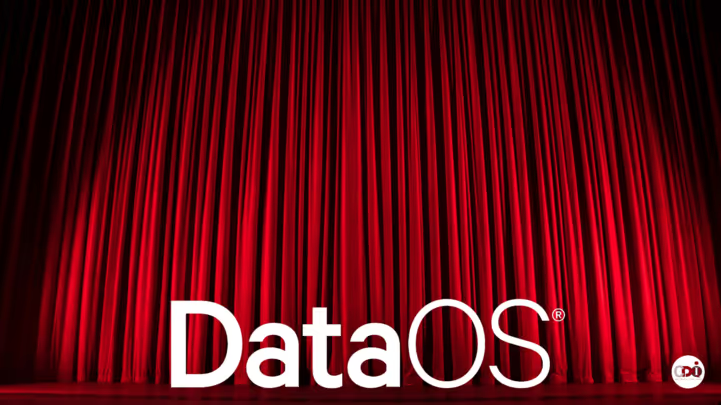MIT CDOIQ: The Modern Data Company Introduces DataOS
Lorem ipsum dolor sit amet, consectetur adipiscing elit. Suspendisse varius enim in eros elementum tristique. Duis cursus, mi quis viverra ornare, eros dolor interdum nulla, ut commodo diam libero vitae erat. Aenean faucibus nibh et justo cursus id rutrum lorem imperdiet. Nunc ut sem vitae risus tristique posuere.

We recently had the opportunity to present our vision for a new data paradigm at the 15th Annual MIT CDIOQ Symposium in Cambridge, Massachusetts at the iconic MIT Computer Science and Artificial Intelligence Laboratory building. The symposium brought together like minds in the quest for better data solutions and understanding the role data now plays in every part of our lives.
While there, we got the chance to talk to others in the field and noticed certain trends and the same questions popping up repeatedly. Here is what people had to say about the state of data, how DataOS addresses those very trends, and what questions remain around its unique approach to the world of data.
Data Hot Topics
Concerns over data quality take the top spot
Data quality was rated as the top concern in an attendee quiz taken during the event. It also came up in many conversations and presentations at the conference. Data quality is a serious concern for businesses as they wrestle with managing and leveraging data in daily operations.
Specifically, concern for how to ensure data quality in unstructured data is critical. More and more unstructured data is generated daily, and without a way to harness it, companies leave vital insights on the table. It’s a tricky problem to solve — and it also has implications for governance and data activation.
Observability is still muddy
A number of tools on the market promise observability, but many of those tools are simple cataloging applications. They promise the world through data cataloging, but users quickly reach a ceiling with these types of simple solutions.
Companies are looking for something that goes beyond cataloging — a tool that produces intelligent metadata and provides real insights into what data they have, who is using it, and what downstream applications depend on that data. Even better, a tool that can deliver insight into the quality of data and how likely it is to be sensitive data would provide companies with real observability that’s closer to the standard they were hoping for — well beyond a cataloging tool.
ESG is a growing concern, and only becoming more so
There was much discussion throughout the event about ESG, in particular the environmental arm of the movement. One of the biggest concerns is the continued cost of moving and storing data and its environmental impact. Data is a vital piece of operations, but a growing number of companies wonder about the long-term consequences of the energy requirements.
In addition, companies expressed interest in the governance portion — the ethical arm of the data ecosystem. Governance is fast becoming a hinge-piece where everything a company can do with its data is limited only by its ability to implement next-generation governance and respect for customer and employee privacy.
DataOS Addresses All These Concerns as the Only Data Operating System on the Market
DataOS provides answers to many of these top concerns. As a data operating system, it provides a critical operational layer for the data ecosystem, tying together distributed systems from the oldest legacy systems to the newest tools. It can:
- Offer complete visibility into the data ecosystem through intelligent metadata, customizable dashboard controls, and attribute-based access controls (ABAC).
- Reimagine governance by allowing centralized ABAC implementation, down to granular levels.
- Enable data use for all stakeholders through outcome-based engineering, which can allow all ESG stakeholders greater insight into the results of ESG initiatives.
It does all this without locking data into a specific vendor’s storage. It also requires no data movement to implement and reduces downstream storage, creating lower energy consumption and a greener future. Companies can reduce their overall cost and processing load while shortening the time to insight from months to mere days or even hours.
Attendees Had Questions about Dataos — We Think You Might Have the Same Ones
Once we started talking about the capabilities of DataOS, others were intrigued. Because DataOS is a first-of-its-kind product, there were naturally some questions we had to clear up. The most common ones are below.
So DataOS is a solution similar to Palantir?
Palantir takes a completely different approach to data management. DataOS is a single holistic solution designed to work with any system, from legacy to cutting edge. It emphasizes data and activation transparency. DataOS tools make it possible for you and your entire organization to operationalize your data and to define business outcomes that shape which data is moved and transformed.
Is DataOS just a data lake?
DataOS is not a storage system. It is an operational layer that can work with any existing storage configuration you have (including data lakes and data warehouses) or help you build an architecture that leverages a new storage system. Much like developers building new apps for iOS, DataOS provides the operating system that brings all data apps and tools together for a single purpose: to make operations easier.
So DataOS is just like Databricks?
Because DataOS delivers an instant operational layer over any legacy or modern data stack, it can partner with existing tools (e.g., Databricks, Snowflake, and Yellowbrick) and accelerate their time to value. The key differentiator is that DataOS is an operational layer — and not a point solution — over storage systems and source or sink systems so you can get value from the data housed there.
So DataOS is just a data cataloging tool and you do data observability like everyone else?
Absolutely not. DataOS offers intelligent metadata that provides one more step toward the holy grail of governance for all types of data. Companies can view not only what data is available, but also where it came from, what quality it’s in, and who is using it. DataOS provides a true picture of your data ecosystem right from a dashboard, and meta-tagging provides infinitely customizable views into the data itself. We’ve taken the concept of data cataloging to its final conclusion — true insight into the data that turns into data insights.
What databases do you work with?
DataOS integrates with everything as an operational layer. It connects every tool in your ecosystem and unites them together to form a connective tissue that unlocks data for use. Whatever you’re already using will work with DataOS, making integration worries a thing of the past.
Dataos Can Revolutionize How You Work with Your Data
To find out more about how DataOS can work with your specific ecosystem, industry, and use case, schedule a demo or even a call with us. We’d love to sit down and show you in real time what your next-generation data ecosystem could be. If you’ve ever wondered, “why can’t I use my data?” we have an answer. It’s because you’ve never seen the power of a truly intelligent data operating system. Let us show you what’s possible today, not next week, next month, or next year.
Find out more about how a data operating system can transform your data landscape by watching our presentation for CDO IQ. See it here.



.avif)